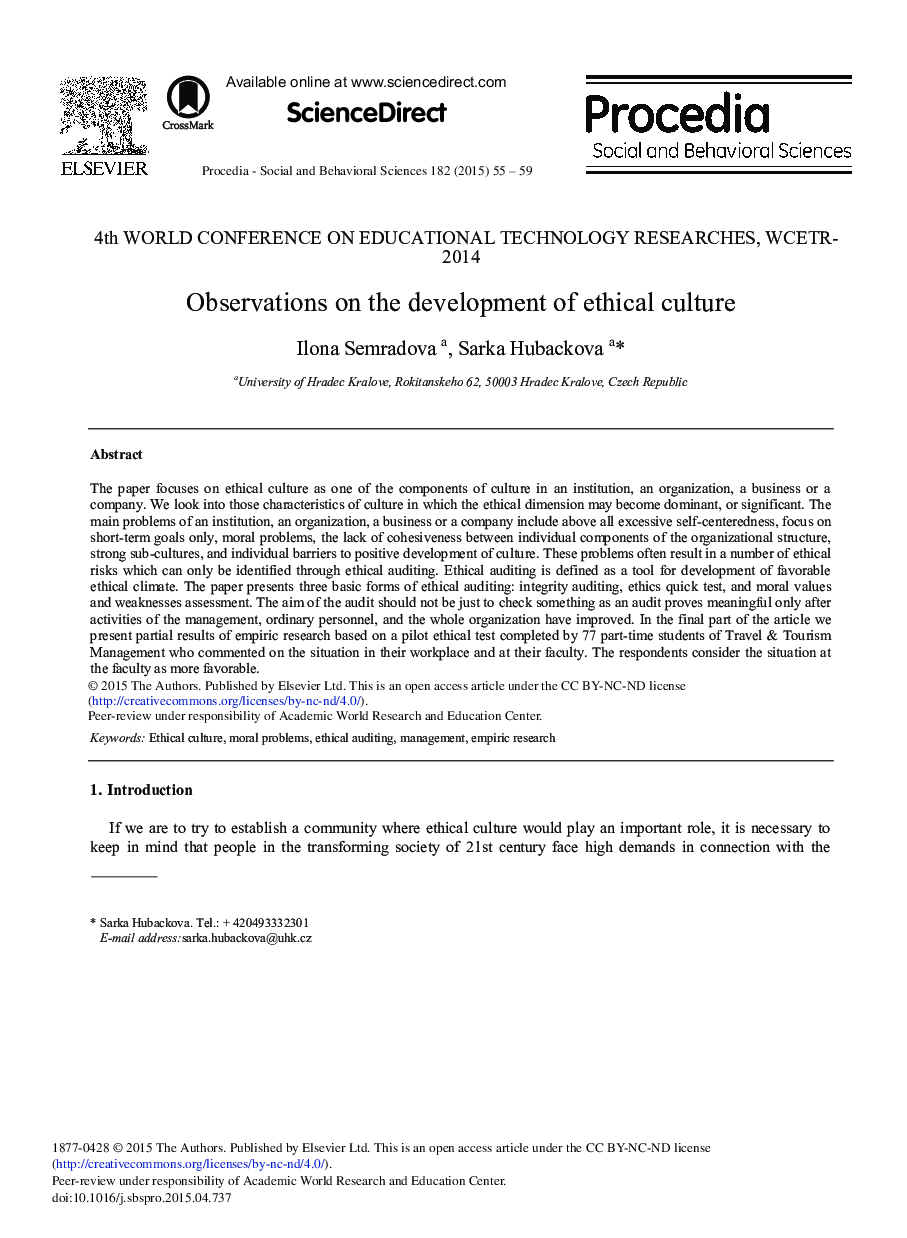| Article ID | Journal | Published Year | Pages | File Type |
|---|---|---|---|---|
| 1110201 | Procedia - Social and Behavioral Sciences | 2015 | 5 Pages |
The paper focuses on ethical culture as one of the components of culture in an institution, an organization, a business or a company. We look into those characteristics of culture in which the ethical dimension may become dominant, or significant. The main problems of an institution, an organization, a business or a company include above all excessive self-centeredness, focus on short-term goals only, moral problems, the lack of cohesiveness between individual components of the organizational structure, strong sub-cultures, and individual barriers to positive development of culture. These problems often result in a number of ethical risks which can only be identified through ethical auditing. Ethical auditing is defined as a tool for development of favorable ethical climate. The paper presents three basic forms of ethical auditing: integrity auditing, ethics quick test, and moral values and weaknesses assessment. The aim of the audit should not be just to check something as an audit proves meaningful only after activities of the management, ordinary personnel, and the whole organization have improved. In the final part of the article we present partial results of empiric research based on a pilot ethical test completed by 77 part-time students of Travel & Tourism Management who commented on the situation in their workplace and at their faculty. The respondents consider the situation at the faculty as more favorable.
